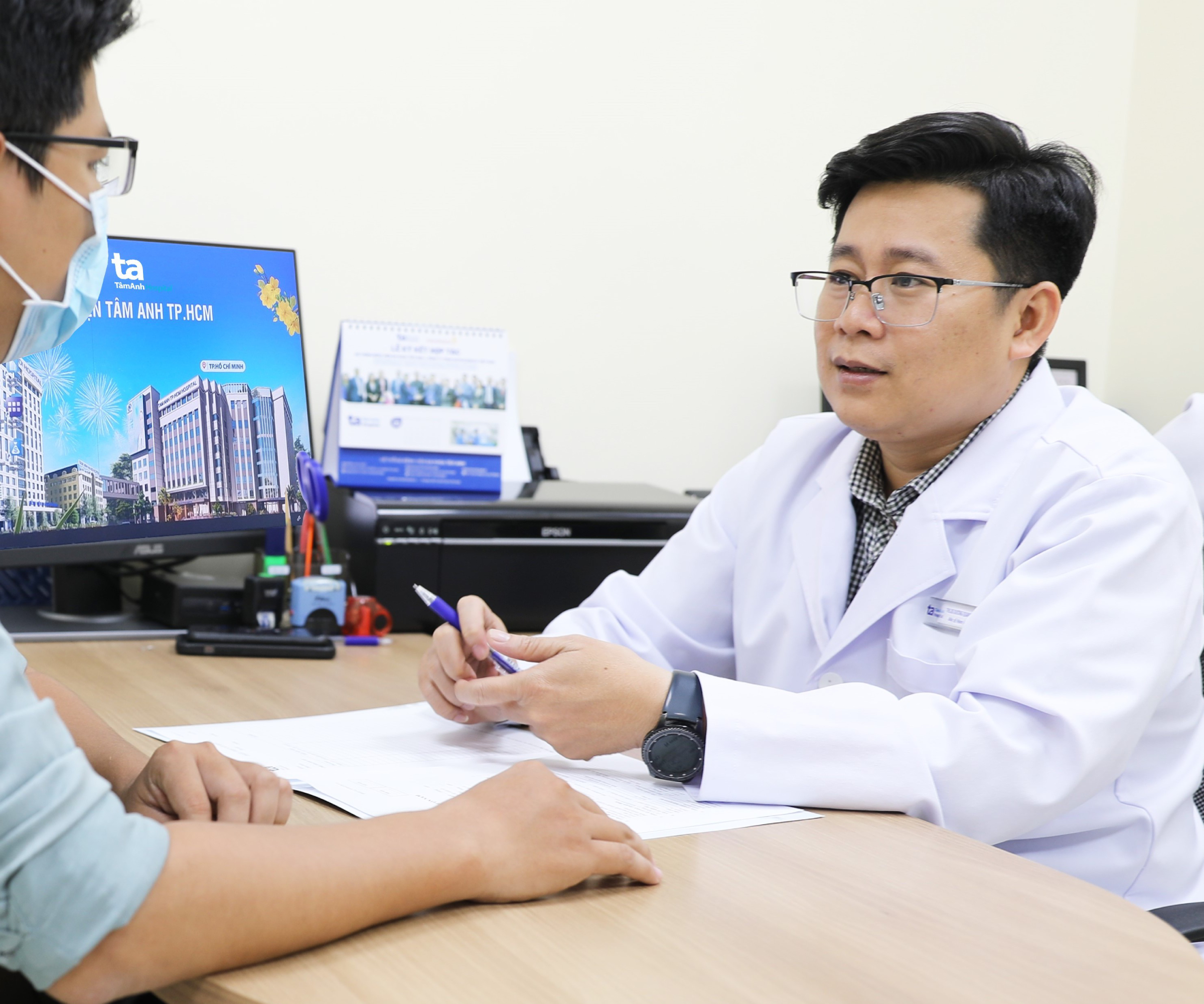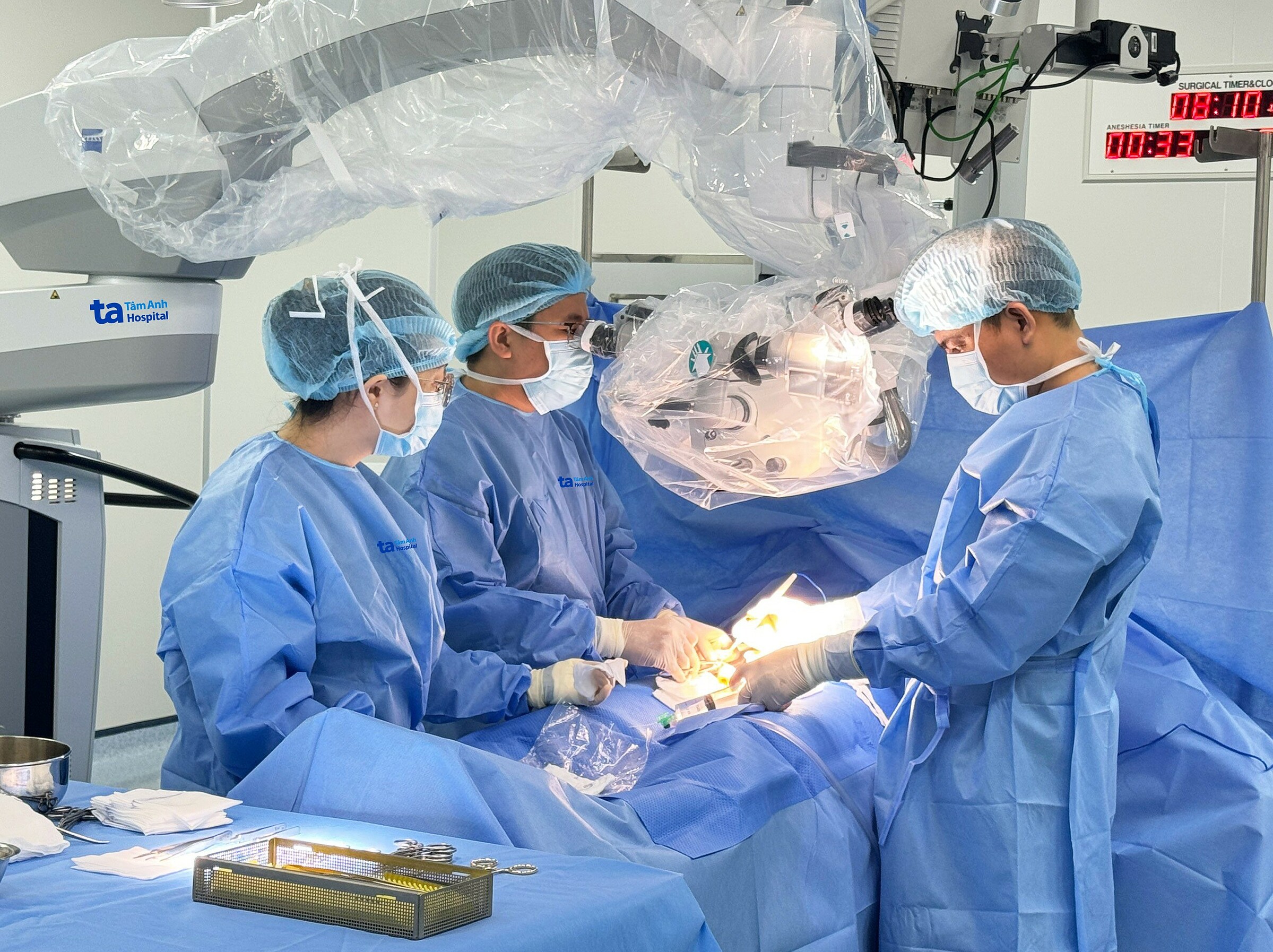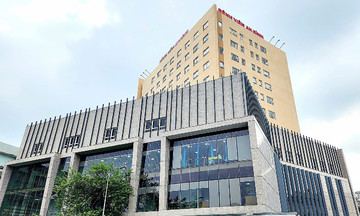Cuong underwent surgery in 2019 to bring his undescended testicles down into the scrotum. However, the size of his genitals had already atrophied, compromising their endocrine function. He received testosterone hormone supplements to maintain sexual function, but his chances of having children remained slim.
Last year, Cuong sought treatment at the Center for Reproductive Support, Tam Anh General Hospital in Ho Chi Minh City (IVF Tam Anh TP HCM). Semen analysis revealed an absence of sperm, extremely small testicular size (only about 1-2 ml, compared to the normal 15-20 ml), and reproductive failure due to reduced pituitary gland function.
Dr. Duong Quang Huy, Head of Andrology, explained that the late diagnosis of Cuong’s undescended testicles resulted in damage from their prolonged presence in the abdomen. The years of post-surgical testosterone supplementation also caused his pituitary gland to cease producing the hormones that stimulate testicular testosterone production. "These two factors are the main reasons for his lack of sperm and infertility," Dr. Huy stated.
 |
Dr. Huy consults with a patient. Photo illustration: Hoai Thuong |
Recognizing that each cause requires a different approach, Dr. Huy developed a combined medical and surgical treatment plan for a comprehensive solution. Cuong received a 12-month regimen of hormones that stimulate sperm production (FSH, LH, etc.). These hormones mimic the body's natural pituitary hormones, signaling the testicles to produce testosterone and sperm. Cuong underwent regular check-ups to monitor his response to the medication.
Last month, Cuong's semen analysis still showed no sperm, but his hormone levels and testicular volume had improved significantly. Dr. Huy and his team decided to perform a micro-TESE procedure to extract sperm directly from the testicles for in vitro fertilization (IVF) with his wife's eggs.
Using a microsurgical system with 30x magnification, the doctors identified several potential seminiferous tubules in both testicles. An embryologist, using a microscope with 300x magnification, then extracted 30 viable sperm. Half were injected into the cytoplasm of the eggs (ICSI technique) and cultured in an optimal environment, resulting in 8 high-quality day-5 embryos. The remaining sperm were cryopreserved, allowing the couple to pursue another IVF cycle in the future without further surgery.
Cuong's wife is currently undergoing uterine lining preparation for embryo transfer and pregnancy. Cuong continues hormone therapy to maintain his overall health and male reproductive function.
 |
Dr. Huy (center) and the micro-TESE team retrieve sperm for infertile men. Photo illustration: Phuong Trinh |
Undescended testicles occur when one or both testicles fail to descend into the scrotum, remaining in the inguinal canal, abdomen, or other locations after birth. According to Dr. Huy, if left untreated, this condition increases the risk of further damage, leading to fibrosis and degeneration of the seminiferous tubules, reduced germ cell count, and infertility in adulthood. Untreated, it can also lead to reproductive failure due to decreased pituitary hormone production.
Most cases of undescended testicles present no pain or discomfort, often leading to late diagnosis. Parents who notice asymmetry in their child's scrotum, with one side normal and the other small or collapsed, or both sides collapsed, should consult a pediatric specialist. Single men can perform self-examinations to detect this condition and seek early surgical intervention. Dr. Huy recommends surgery before puberty to minimize testicular damage. Depending on the specific case, some patients may also require hormone therapy to improve endocrine and sperm production.
At IVF Tam Anh, doctors have successfully treated numerous infertile men using medical therapy, micro-TESE, or a combination of both, enabling them to have their own children and improving their reproductive health.
Hoai Thuong
*The patient's name has been changed.












